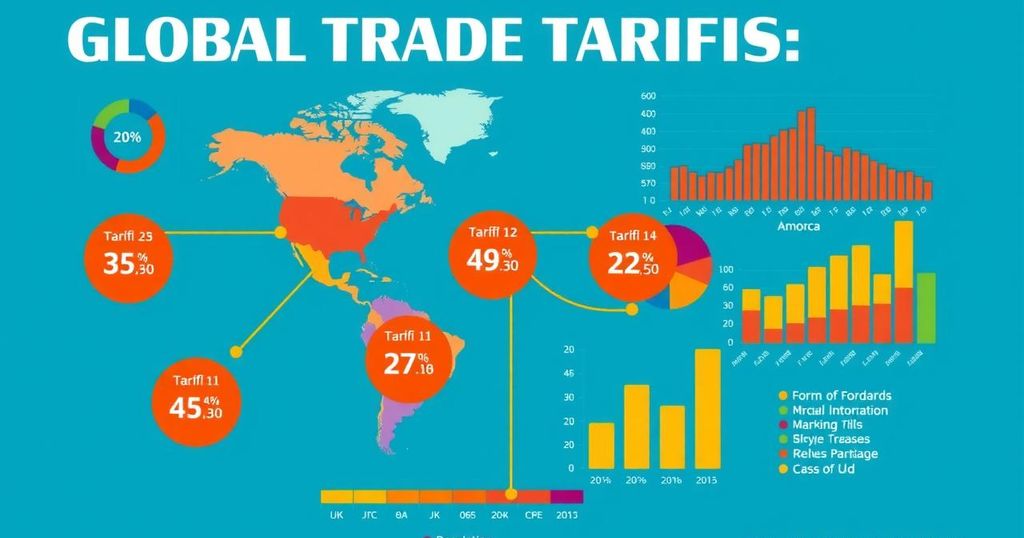Argentina is witnessing violent protests against President Javier Milei’s austerity measures, particularly targeting pension cuts. Clashes have erupted in Buenos Aires, leading to numerous injuries and arrests as protesters demand substantial changes. The situation is escalating, with significant public outrage regarding the violent response from security forces.
Argentina is currently experiencing significant unrest as President Javier Milei implements harsh austerity measures that have led to violent protests in Buenos Aires. Many retirees and passionate football fans are rallying against these cuts, expressing their dissatisfaction through clashes with riot police. The protesters are calling for increased pensions and an immediate halt to the budget reductions, highlighting their grievances against the government’s financial strategies.
During these protests, security forces have resorted to using tear gas, water cannons, and rubber bullets to disperse the crowds. In response, demonstrators have vandalized police vehicles and set up barricades, escalating the violence. As a result of the clashes, at least 20 individuals have been hospitalized, and more than 150 arrests have been made, indicating a profound level of unrest and tension in the capital.
Graphic footage depicting elderly protesters being assaulted, alongside the serious injuries sustained by a journalist covering these events, has intensified public outrage. President Milei continues to support his economic policies, asserting that they are crucial for the nation’s fiscal stability despite the mounting backlash. With pensioners and their supporters adamant about their demands, the situation in Argentina remains precarious and filled with uncertainty.
In conclusion, Argentina is facing a crisis as widespread protests erupt in response to President Milei’s pension cuts. The clashes between demonstrators and police reflect deep societal discontent and have led to significant injuries and arrests. As the unrest continues, the government’s stance on austerity measures is becoming increasingly untenable, and the situation demands urgent attention to prevent further escalation.
Original Source: www.firstpost.com




